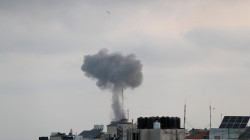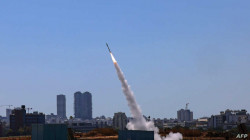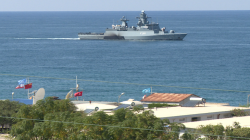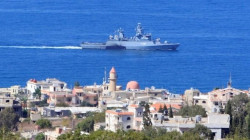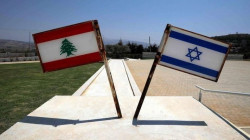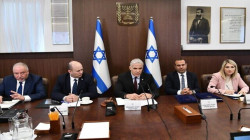Will the dispute over maritime borders spark a war between Israel and Lebanon?
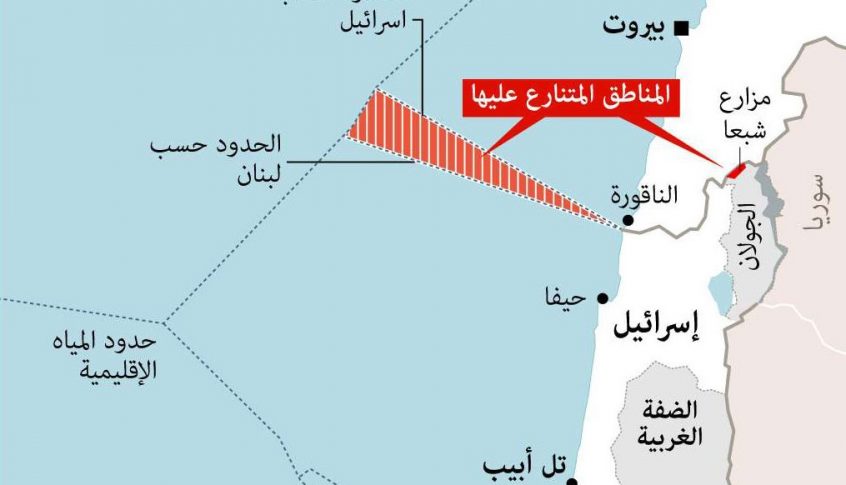
Shafaq News / Signs of a crisis that could develop into an armed confrontation between Lebanon and Israel loom after a gas production ship entered the disputed "Karish field" to begin extracting and transporting gas for Israel, despite Lebanese warnings that this might jeopardize the international security.
Furthermore, Hezbollah has already stated that it will take action if Israel attempts to usurp Lebanon's marine energy resources.
As Israel rushes to exploit the disputed field's resources, fears grow that the "hostile action" will escalate into a military confrontation between the two sides, at a time when Lebanon is suffering from one of the world's three worst economic crises in the last 150 years, according to the World Bank.
Fears are also growing as the anniversary of Israel's invasion of Lebanon in 1982 approaches. Israel reiterates its warnings of the growing rocket and drone arsenal Hezbollah possesses now, which is suspected of being responsible for several drone infiltrations into Israel.
Egypt's Suez Canal Authority stated that the new European ship, The Einerigan Power FPSO (Floating production storage and offloading), believed to belong to a Greek company registered on the London Stock Exchange, and built specifically for work on the Karish field, crossed the canal on Friday, heading for the Israeli coast.
The European ship, which took off from Singapore, is the first ship capable of producing, manufacturing, and storing liquefied natural gas that crosses the channel since its establishment more than a century and a half ago.
According to Lebanese reports, the ship has already arrived at the Karish field, opposite the south Lebanese coast, in an area that is still legally disputed between Lebanon and Israel, and its fate has yet to be determined per the maritime demarcation based on years of US-sponsored negotiations between the two sides.
Gas is supposed to flow from Karish to the ship, 90 kilometers (30 miles) off the coast, off the village of Tantura, Haifa, where production output will be processed and separated before being transferred to Israel's national gas line for export as thought to Europe.
The ship is believed to have a processing capacity of 800 million cubic feet per day (8 billion cubic meters per year) and a storage capacity of 800,000 barrels of gas.
Israel's agreement with the European company came despite Lebanon's official announcement that Karish was a disputed field in a letter sent by the Lebanese government to the United Nations on January 28, 2022.
The ship's crossing of the Suez Canal came only a few days after Hezbollah leadership said it might intervene to block a possible Israeli encroachment on Lebanon's share of the field. "We will not allow Israel to dig up oil and gas in the disputed area," said Mahmoud Qamati, a member of Hezbollah's political bureau.
Hassan Nasrallah, the secretary-general of Hezbollah, recently called for "a national consensus on how to protect and extract this wealth," warning Israel, "what we need is the courage to proceed with outsourcing if we want to avoid more debt... If the enemy tries to stop us from digging, we can also stop them."
"We cannot allow Tel Aviv to benefit from Lebanese oil and gas while Lebanon struggles to secure its own supplies amid the worst crisis in its history. The Israeli occupation of the Karish field is similar to the Israeli occupation of Beirut, and all Lebanese people and national forces are ready to participate in this national battle," warned the Jaa'fari mufti Ahmed Kabalan.
Moreover, the Lebanese presidency stated, "Lebanon sent a letter to the UN a few weeks ago, affirming its commitment to its rights and maritime wealth, and stating that the Karish field is located within the disputed area. On February 2, 2022, the letter was distributed to all members of the Security Council as a document of the Council under the number S/2022/84."
In the letter, Lebanon asked the Security Council not to allow Israel to carry out any excavations in the disputed areas "in order to avoid steps that could threaten international peace and security."
The Lebanese letter also noted that Lebanon is still betting on the success of mediation efforts by U.S. mediator Amos Hochstein to reach a UN-sponsored solution to the maritime border issue.
President Michel Aoun stated that he had contacted Prime Minister Najib Mikati and other officials to follow up on the ship's case and "asked the army command to provide him with accurate and official data in order to act accordingly."
He also pointed out that "Negotiations to demarcate the maritime border are underway, and therefore, any action in the disputed area constitutes provocation and hostile action."
Mikati warned of Israel's attempts to spark a new crisis by encroaching on Lebanon's water wealth and imposing a fait accompli in a disputed area where Lebanon upholds its rights, which is extremely dangerous and would create tensions that no one can predict.
Mikati also called on "the United Nations and all those concerned to remedy the situation and commit the Israeli enemy to stop its provocations."
The announcement of the ship crossing came just days after the end of military exercises by the Israeli army in Cyprus, with the participation of elite land, air, and naval units.
Lebanon's Director-General of Public Security, Maj. Gen. Abbas Ibrahim, who recently returned from a visit to Washington, told the General Security Magazine that one of the issues he discussed with U.S. officials was the demarcation of the maritime border between Lebanon and Israel on the 23rd and 29th lines.
He stated that line 29 is the negotiation line for Lebanon, that everything within it is disputed, and that the enemy has no right to extract oil or dispose of anything north of this line, adding that "the infringement of Lebanese oil wealth will become an infringement on Lebanese sovereignty and rights. As long as the maritime border is not demarcated, Lebanon will respond as if the country's sovereignty and rights have been violated."
For his part, retired military general Amin Hatit, who led the demarcation of the land border with Israel when it withdrew from most Lebanese territory in 2000, called for the Supreme Defense Council to convene and "make appropriate decisions to confront Israel and prevent it from working in the disputed area between the lines 23 and 29."
Exclusive to Shafaq News agency.
